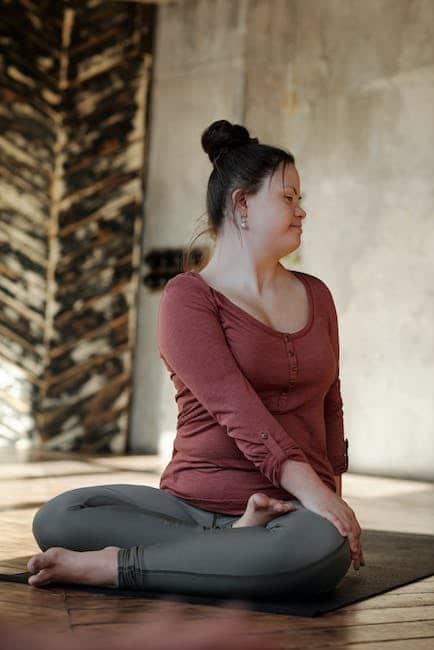Healing From Trauma: The Value of Yoga in Restoring Internal Balance
Yoga can increase the effectiveness of evidence-based treatments for substance use disorder (SUD) and mental health issues. Emerge Recovery TX offers trauma-informed yoga alongside other complementary, holistic therapies. According to the International Journal of Yoga, “Trauma-informed yoga is adapted to the unique needs of individuals working to overcome trauma . . . by creating a safe, tailored practice for students to learn how to respond, rather than react, to symptoms and circumstances.” Trauma-informed yoga helps women in recovery gain confidence and self-awareness.
The Impact of Yoga on Recovery
Women recovering from SUD and trauma-related mental health disorders benefit from participating in trauma-informed yoga. According to the National Center for Complementary and Integrative Health (NCCIH), “Studies have suggested possible benefits of yoga for several aspects of wellness, including stress management, mental/emotional health, promoting healthy eating/activity habits, sleep, and balance.” Yoga restores internal balance by increasing awareness of the connection between thoughts, feelings, behaviors, and trauma responses. Women in recovery improve their general health by taking part in yoga.
Yoga Improves Overall Health
Exercise routines, mindfulness-based techniques, and aspects of yoga philosophy have unique benefits for people recovering from substance misuse or mental health issues. Women in recovery often use yoga as a form of self-care to improve their general well-being.
Some of the mental and physical health benefits of yoga include:
- Increased circulation
- Reduced blood pressure
- Decreased risk of heart disease
- Reduced symptoms of chronic pain
- Lower overall stress levels
- Reduced effect of some trauma responses
According to the International Journal of Stress Management, “The practice of yoga has demonstrated benefit for many medical disorders, such as heart disease, chronic pain, hypertension, and insomnia, and has thus become one of the most widely practiced forms of complementary healthcare in the US.” The skills learned in sessions also reduce the symptoms of SUD and mental health disorders. Women in recovery can use deep breathing and other relaxation techniques taught in yoga to cope with everyday challenges.
The Difference Between Community Yoga and Trauma-Informed Yoga
Women attending community yoga classes may experience reduced stress and better physical health. However, instructors for community yoga don’t have the necessary training to recognize and avoid potential trauma responses. Trauma-informed yoga takes into account possible triggers related to trauma and recovery. In addition, trauma-informed care protects the clinician and the client from re-traumatization.
Community yoga does not provide the following:
- Guaranteed private personal space during sessions
- Guidance on how to cope with body memories or flashbacks
- Compassionate and empathetic instructions tailored to the unique needs of each person
During community yoga classes, instructors often move around the space and may touch participants to guide them through achieving more difficult positions. The instructors at Emerge Recovery TX are trained in trauma recovery and understand touching, staring, or unexpected movements may trigger a strong trauma response. Trauma-informed yoga prioritizes personal space and safety. Yoga instructors provide guidance from their mats and don’t wander the room.
Trauma-Informed Yoga Reduces the Risk of Re-Traumatization
Individuals diagnosed with co-occurring trauma-related issues, including post-traumatic stress disorder (PTSD), may worry about experiencing re-traumatization during treatment. Trauma-informed yoga complements evidence-based therapies and reduces the risk of re-traumatization by doing the following:
- Ensuring clients remain mindful of their body responses
- Providing clients with a safe space to explore sensations and feelings related to trauma
- Avoiding triggers by personalizing yoga sessions to the needs of each client
- Allowing clients to relive certain body motions or sensations in a safe space where they have the support of trained clinicians
According to the previously mentioned research by the International Journal of Stress Management, “The practice of yoga has also been linked to the alleviation of mental health problems, such as anxiety and depression, eating disorders, schizophrenia, and attention-deficit hyperactivity disorder.” Yoga uses posture, breathing techniques, and mindfulness to improve a person’s coping skills and help them achieve internal equilibrium.
Benefits of Yoga for Women in Recovery
Women have a higher risk of experiencing trauma. The effects of trauma are often cumulative and significantly impact a person’s recovery from SUD or mental health issues. Trauma-informed yoga and other holistic treatments reduce trauma symptoms and help women heal.
Trauma-informed yoga increases awareness of how thoughts, feelings, and actions work in harmony to create balance and healing. Women who participate in trauma-informed yoga use the techniques they learn to manage stress and symptoms better. Many women continue to practice yoga after completing treatment to enjoy the many health benefits.
Trauma-Informed Yoga at Emerge Recovery TX
Trauma manifests in the body. By increasing mindfulness and improving the mind-body connection, yoga helps clients address those physical and emotional trauma responses. The yoga instructors at Emerge Recovery TX help clients develop healthy routines and behaviors to manage their condition. Trauma-informed yoga is an excellent complementary service clients can use to heal and grow during recovery.
Women in treatment programs for SUD and mental health disorders often benefit from complementary treatments. Yoga is a popular alternative holistic therapy used to help clients reduce stress and improve overall well-being. Many communities offer local yoga classes and retreats for individuals who want to enhance their mind-body connection. However, community yoga programs don’t take into account potential trauma triggers and reactions. Emerge Recovery TX offers trauma-informed yoga and other holistic therapies to help women regain their internal balance and improve self-confidence. Clients use the techniques learned in yoga sessions to reduce symptoms and improve functionality. To learn more about our trauma-informed approach to yoga, call us today at (737) 237-9663.







